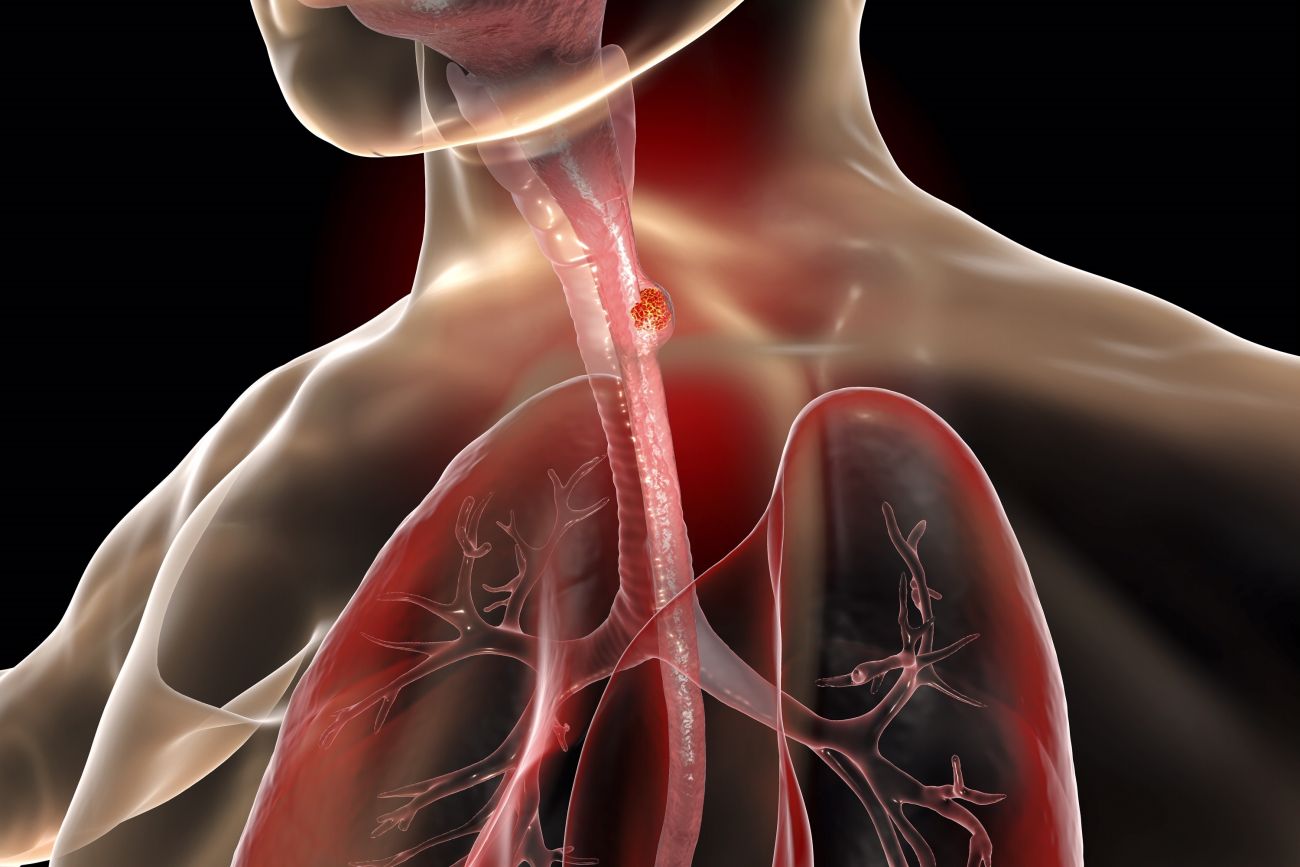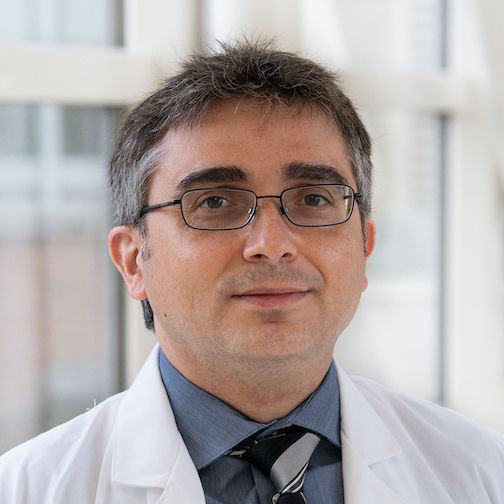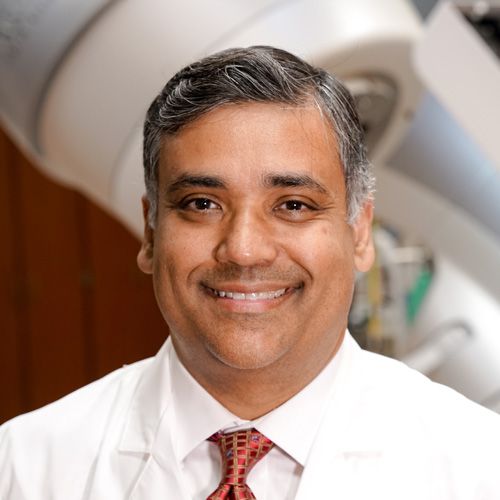Earlier Roswell Park research showed that propranolol boosts efficacy of immunotherapy
- Most esophageal cancers diagnosed at late stage, with poor prognosis
- Roswell’s phase 2 studies target adenocarcinomas, the most common type
- These two new clinical trials believed to be the first of their kind
BUFFALO, N.Y. — Patients with esophageal cancer typically face a poor prognosis, largely because the disease is advanced at the time of diagnosis — and progress toward more-effective therapies has lagged. Now, armed with encouraging results from previous clinical trials, researchers at Roswell Park have launched two phase 2 clinical trials for esophageal cancer. Their goal: to determine whether a beta blocker called propranolol (brand name Inderal) can improve the efficacy of checkpoint inhibitors, a type of immunotherapy. Approved by the FDA in 1968, propranolol is commonly used to treat high blood pressure.
“In our earlier laboratory and clinical trials, we have demonstrated that beta blocker drugs like propranolol allow anti-tumor immune cells to become much stronger, which gives immunotherapies — and in particular, checkpoint inhibitors like pembrolizumab — a much better chance to work,” says Elizabeth Repasky, PhD, Vice Chair of Immunology and Co-Leader of the Cancer Stress Biology Program at Roswell Park. Dr. Repasky and her team have found that propranolol can block adrenergic stress hormones, which are elevated in many patients after a cancer diagnosis and can suppress the immune system.
Both clinical trials are enrolling patients with adenocarcinomas of the esophagus or gastroesophageal junction, where the esophagus connects to the stomach. Adenocarcinomas are cancers that grow in the glandular tissue of specific organs, such as the esophagus and stomach, and produce fluids such as mucus and digestive fluids. For patients with advanced adenocarcinoma, median survival stands at just over 12 months.
Why the poor survival rate?
“By the time the disease is discovered, most of the time it has already spread to adjacent lymph nodes or distant organs, and it is resistant to treatment,” says Sarbajit Mukherjee, MD, MS, gastrointestinal medical oncologist in Roswell Park’s Department of Medicine, Co-Leader of the GI Translational Research Group and principal investigator (PI) of one of the clinical trials.
Currently, most patients with esophageal or gastroesophageal junction cancer who have metastatic disease that has spread to other parts of the body, or whose disease cannot be treated surgically, are treated with a combination of an immune checkpoint inhibitor, such as pembrolizumab (brand name Keytruda) or nivolumab (brand name Opdivo), and combination chemotherapy — yet survival remains poor.
“For the most part, these cancers are not very responsive to immunotherapy,” explains Dr. Mukherjee. “They respond initially to chemotherapy, but the cancer finds a way to beat the chemotherapy, and it becomes progressive.”
“Roswell Park is at the forefront of research on gastroesophageal cancer, and these two studies incorporating beta blockers are aiming to improve the efficacy of chemotherapy, immunotherapy and radiation in those patients,” says Christos Fountzilas, MD, FACP, Co-Leader of the Gastrointestinal Clinical Disease Team and Associate Director for Solid Tumors with the Early Phase Clinical Trials Program at Roswell Park.
Reinforcing that possibility, a database of Roswell Park patients who were treated previously for esophageal cancer shows that those who were taking beta blockers prior to their cancer treatment had better outcomes, notes Dr. Mukherjee. The study he is leading, “A phase 2 trial of chemotherapy, pembrolizumab and propranolol in advanced esophageal/gastroesophageal junction adenocarcinoma patients” (NCT05651594) will enroll 40 patients. They will receive the standard-of-care combination chemotherapy along with pembrolizumab and propranolol.
Anurag Singh, MD, Director of Radiation Research in Roswell Park’s Department of Radiation Medicine and Co-Leader of the Cancer Stress Biology Program, will serve as PI of the second study, a randomized clinical trial that will gauge the effects of propranolol when it is combined with chemotherapy and radiation therapy (chemoradiation). The study, “Propranolol with Standard Chemoradiation for Esophageal Carcinoma” (NCT04682158), will enroll 60 patients. All patients will receive standard-of-care chemoradiation prior to surgery, and some will also be chosen randomly to receive propranolol. Patients who were already on a beta blocker prior to the study will receive chemoradiation alone.
“We haven’t made any significant advances against esophageal cancer in many, many years. These two clinical trials represent a significant opportunity to potentially change the standard of care for esophageal cancer,” notes Dr. Singh.
Both clinical trials are funded by Roswell Park and the U.S. Department of Defense.
For more information about these studies or other clinical trials available at Roswell Park, call 1-800-ROSWELL (1-800-767-9355) or email AskRoswell@RoswellPark.org.
###
Roswell Park Comprehensive Cancer Center is a community united by the drive to eliminate cancer’s grip on humanity by unlocking its secrets through personalized approaches and unleashing the healing power of hope. Founded by Dr. Roswell Park in 1898, it is the only National Cancer Institute-designated comprehensive cancer center in Upstate New York. Learn more at www.roswellpark.org, or contact us at 1-800-ROSWELL (1-800-767-9355) or ASKRoswell@RoswellPark.org.
Rebecca Vogt, Media Relations Specialist
716-845-4919; rebecca.vogt@roswellpark.org



